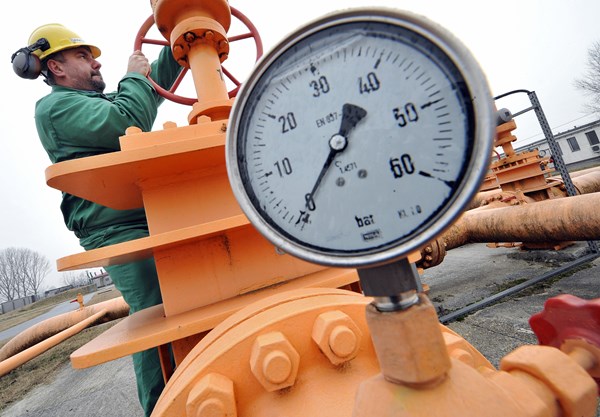Russia's Gazprom warns Ukraine that it will ‘shut off the gas pipe’ on January 1
Naftogaz executive director Yuriy Vitrenko said that the company has already received a warning from Gazprom that, without a new gas transit contract, it will stop supplying gas to Ukraine’s gas transportation system (GTS).
“In a letter which Gazprom sent to Naftogaz it is written in black and white that on January 1 at 10:00 Moscow time (09:00 Kyiv time) Gazprom will have no reason send gas to Ukraine,” Vitrenko told Deutsche Welle in an interview. He explained that, in saying this, Gazprom essentially admitted that it will “close the pipe” and stop gas transit through Ukraine’s GTS.
Vitrenko also pointed out that, without a transit contract, Ukraine will also have no reason to pump the Russian gas in the Ukrainian GTS to Europe. Consequently, such gas will be pumped into underground reservoirs until its legitimate owner appears. Vitrenko admitted that there are physical limitations to pumping gas into underground reservoirs. Ukraine’s reservoirs have a capacity of 25-30 billion cubic meters, of which 21 billion is already being used.
On Wednesday, November 27, Vitrenko said that Russia and Ukraine need to reach a gas agreement no later than December 13. If no agreement is reached, “there will have to be some kind of interim decision or some kind of other decision,” he added, without explaining what options he had in mind.
At the end of 2008, Kyiv and Moscow were unable to conclude a new agreement for the supply of Russian gas to Ukraine. As a result, Gazprom was supposed to stop its supply, but it continued to dispatch the gas quantities necessary to meet its obligations to European consumers. Naftogaz started to take away part of the transported gas, which led to the most serious disruption of the gas supply to Europe in history, in the peak of winter. The contract signed hastily at the start of 2009 for supplying gas to Ukraine and for transit through it to the EU will expire on December 31, 2019.
Russia, Ukraine and the European Commission are still in consultations on the transit of Russian gas to the EU through Ukraine in the period starting in 2020, but the dialog has been complicated by lawsuits between Gazprom and Naftogaz. Moscow has proposed a “package decision” which would entail a settlement of the legal disputes and direct gas sales to Ukraine at reduced rates. As a backup option, Russia is prepared to extend the current transit agreement for one year. However, Ukraine is unwilling to withdraw its lawsuits or to sign a short-term contract. The next trilateral meeting on gas transit between Russia, the EU and Ukraine could take place in the first week of December.
